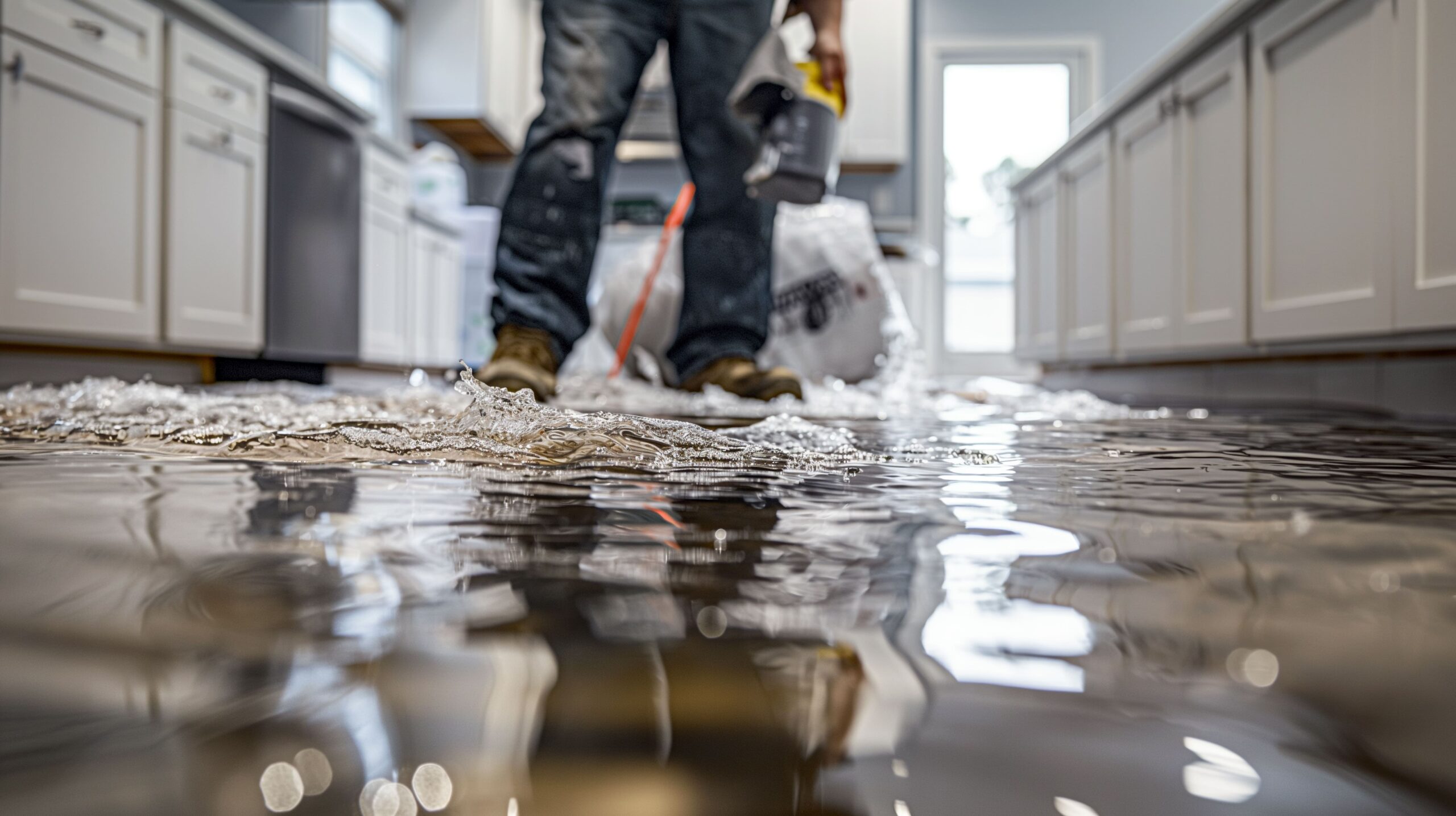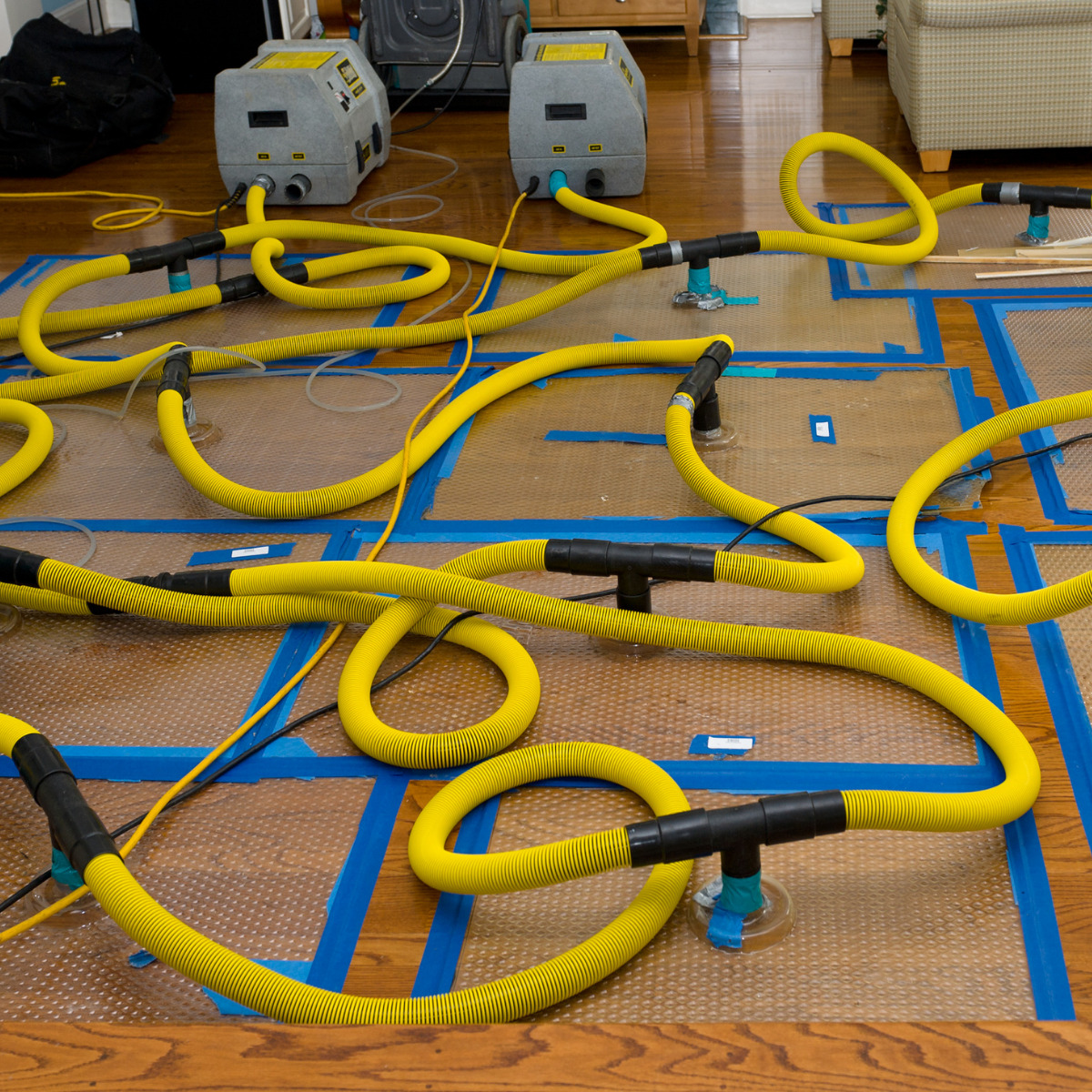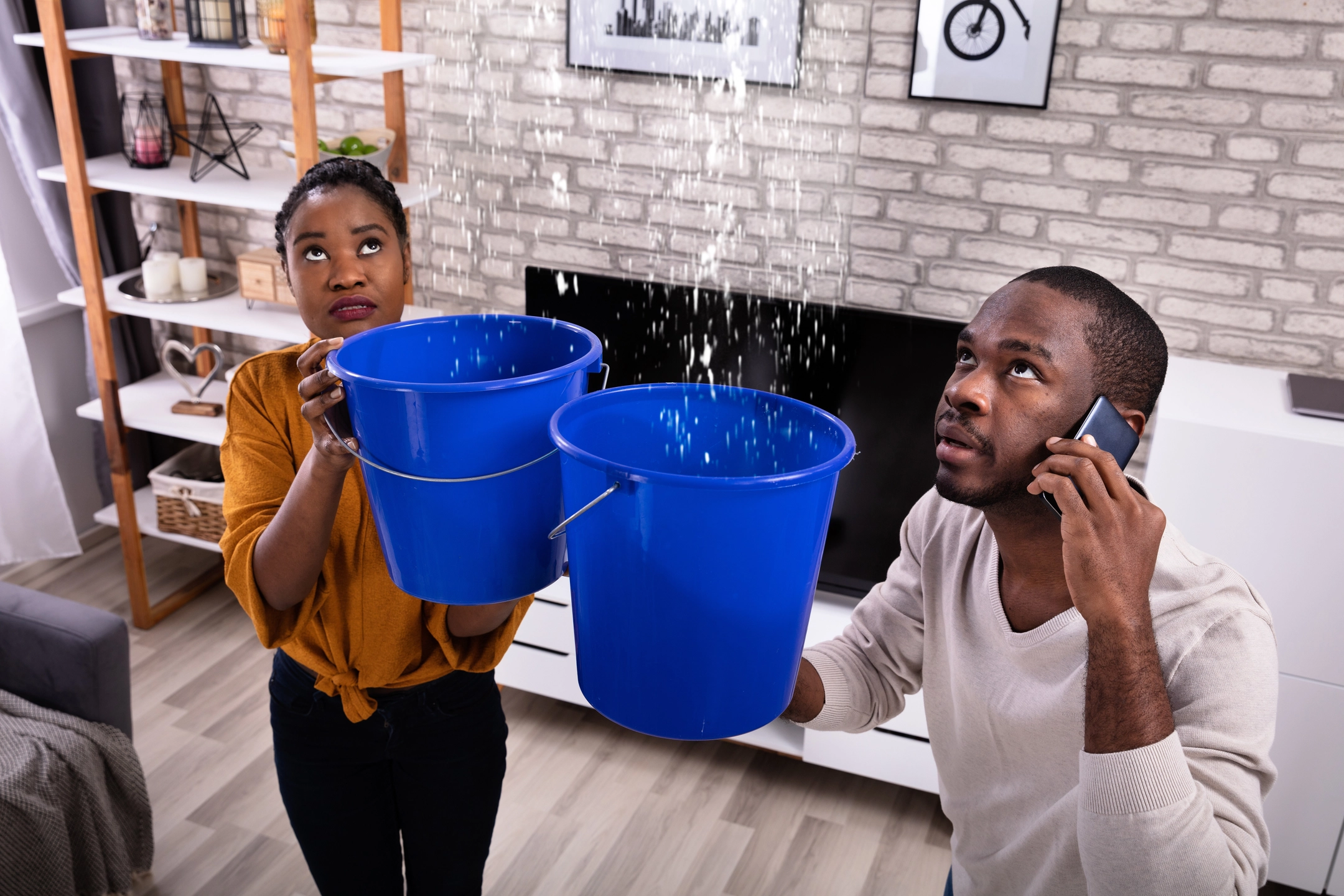How to File an Insurance Claim After Water Damage Restoration St George UT
How to File an Insurance Claim After Water Damage Restoration St George UT
Blog Article
The Full Overview to Browsing the Obstacles of Water Damages Reconstruction
Water damages can strike unexpectedly, leaving you with an intimidating mess to tidy up. Comprehending the causes and assessing the extent of the damages is important. Your prompt actions can make a considerable distinction in the end result. What steps should you take first, and just how can you ensure you're shielded moving ahead? The answers hinge on a detailed technique to repair that every home owner ought to recognize.

Understanding the Reasons For Water Damage
Water damage can strike unexpectedly, frequently leaving you clambering to deal with the after-effects. Understanding the sources of water damages is important for avoidance. Flood Damage Restoration. Typical perpetrators consist of leaky roofing systems, burst pipelines, or malfunctioning appliances. You may also experience issues with your pipes systems, like clogged up drains or sewer backups, which can lead to significant water invasion. Weather-related incidents, such as heavy rainfalls or flooding, can additionally damage your residential or commercial property. In enhancement, the age of your home contributes; older structures commonly have wearing away products that are much more vulnerable to leaks and damages. Also small problems, like condensation from heating and cooling systems, can gather and cause problems with time. By identifying these prospective resources of water damages, you can take proactive measures to secure your home and decrease future threats. Remaining notified will certainly encourage you to recognize early indicators and act quickly when issues occur
Examining the Extent of the Damage
Reviewing the level of the damage is important for establishing the appropriate reaction when you have actually identified a prospective water damages issue. Begin by inspecting the influenced locations completely. Search for noticeable signs like water stains, deformed floorings, or peeling off paint. Don't forget to inspect hidden areas, such as behind walls or under carpets, where moisture may linger.Next, figured out the sort of water involved-- tidy, gray, or black-- since this affects the intensity of the damage and needed remediation steps. Use a wetness meter to gauge humidity levels in wall surfaces and floors, helping you identify lingering wetness that can bring about mold growth.Document everything with pictures and notes, as this information can be vital for insurance cases. By precisely reviewing the damage, you'll be better furnished to select the right reconstruction strategy and protect against additional problems down the line.
Immediate Tips to Take After Water Damage
After experiencing water damage, the initial point you require to do is assess the circumstance meticulously. Prioritizing your security is necessary, so see to it the location is safe before taking any further actions. Don't fail to remember to document every little thing completely, as this will be very important for insurance policy claims and restoration efforts.
Analyze the Damages
Examining the damage swiftly is vital for lessening the impact of water breach. Start by checking the affected areas to identify the degree of the water damage - Water Damage Repair. Seek noticeable indications like drenched carpets, deformed floors, and tarnished walls. Examine for covert water, too, particularly in crawl spaces and behind devices. Utilize a wetness meter if you have one, as it can assist determine areas that require attention. File everything with notes and images; this will work for insurance policy cases. Remember to assess your items as well-- furniture and personal products may require specialist cleansing or disposal. By understanding the extent of the damage, you can make enlightened decisions regarding the next action in the repair process
Prioritize Safety First
Understanding the degree of water damage is just the beginning; your safety and security precedes. Prior to you enter a water-damaged location, ensure to turn off the power and gas supply to avoid any type of threats. Wear safety gear, consisting of boots and handwear covers, to protect yourself from contaminants. Be mindful of structural instability-- wall surfaces, ceilings, or floors might have compromised. If the water is originating from a sewer resource, avoid contact and phone call experts for assistance. Keep kids and family pets away from the afflicted area. If you scent gas or see electrical sparks, evacuate promptly. Keep in mind, prioritizing your security assurances you can properly attend to the damage without risk to your health and wellness. Always err on the side of caution.
File Whatever Extensively
As you start resolving water damages, documenting every little thing completely is crucial for both insurance coverage cases and remediation initiatives. Begin by taking clear pictures of the influenced areas, recording the level of the damages. Ensure to note the date and time of the incident. Create a list of harmed items, consisting of furnishings, devices, and here individual possessions, together with their approximated worths. Tape-record any activities you take, like speaking to experts or relocating things to avoid additional damages. Maintain all receipts and invoices connected to the remediation procedure. This documents will certainly enhance your instance when suing and aid the remediation group comprehend the circumstance much better. Bear in mind, detailed paperwork can make a substantial distinction in your recuperation journey

Stopping and mitigating additional issues Mold and mildew Growth
When water damages takes place, acting swiftly can greatly minimize the risk of further concerns, especially mold growth. Get rid of any standing water utilizing pumps or damp vacuum cleaners. Next off, dry the impacted locations thoroughly. Open home windows, use fans, and take into consideration dehumidifiers to accelerate the drying out process. Aim for a moisture level listed below 60% to prevent mold spores from settling.Inspect all surfaces and materials impacted by water; throw out anything that can't be properly dried, like drenched carpets or drywall. Tidy and sanitize staying surfaces with a combination of water and detergent, or a specialized mold-preventive solution.Keep an eye on the location over the next couple of weeks. Address it instantly if you notice any type of musty smells or staining. Bear in mind, prompt activity not only avoids mold and mildew development yet likewise safeguards your home and health and wellness.
Dealing With Water Damage Reconstruction Experts
After taking instant actions to reduce water damage and protect against mold and mildew development, it's time to ponder professional assistance. Water damages repair specialists have the experience and devices needed to handle comprehensive damages properly. When you get to out, be prepared to explain the scenario carefully. This assists them analyze the extent of the damage and prepare accordingly.Once they arrive, anticipate a complete inspection and a detailed plan for reconstruction. They'll utilize customized tools to remove water, completely dry out affected locations, and disinfect your space. Don't think twice to ask questions throughout the procedure; recognizing their methods can ease your concerns.You ought to likewise go over timelines and what to expect at each phase of the reconstruction. Collaborating honestly with these specialists warranties you remain informed and involved, helping you reclaim your area more successfully. Count on their knowledge, and you'll see your home go back to its pre-damage problem.
Browsing Insurance Cases for Water Damages
Navigating insurance claims for water damages can really feel overwhelming, especially if you're unknown with the process. First, assess your insurance coverage to comprehend what's covered. Look for specifics on water damage, as not all plans treat it the very same. File the damage thoroughly-- take images and make notes regarding what occurred and when.Next, contact your insurance policy company promptly. Record the damages and provide them with your documents. They'll appoint an insurance adjuster to assess the situation. Be prepared to answer concerns and supply extra information as needed.Stay organized throughout the process. Keep a document of all interactions, consisting of days, names, and information of discussions. Don't think twice to appeal if your claim is denied or you feel it's inadequate. Know that determination can settle, so advocate for on your own to guarantee you obtain the protection you're entitled to.
Tips for Future Water Damage Avoidance
To keep your home secure from water damages, regular upkeep checks are necessary. Do not forget the worth of mounting water detection systems, as they can alert you to leaks prior to they become significant problems. By staying proactive, you can save on your own time, money, and stress later on.
Normal Upkeep Checks
While it may appear tiresome, conducting regular maintenance checks can substantially reduce the risk of future water damages in your house. Start by inspecting your roof covering for missing tiles or leakages; even small concerns can rise promptly. Inspect gutters and downspouts to guarantee they're clear and directing water far from your structure. Try to find indicators of dampness in basements or crawl spaces, and resolve any type of leaks from pipes or home appliances instantly. Bear in mind to check your sump pump on a regular basis to confirm it's operating appropriately. Do not forget your cleaning device pipes; change them every couple of years to avoid ruptured disasters. By remaining aggressive with these checks, you'll save yourself time, money, and stress in the lengthy run.
Set Up Water Discovery Equipments

Regularly Asked Inquiries
How much time Does the Water Damage Remediation Refine Generally Take?
The water damage remediation process usually takes anywhere from a few days to a number of weeks, relying on the level of the damages. You'll wish to act swiftly to minimize more issues and quicken the procedure.
Can I Remain In My Home During the Remediation Process?
You can remain in your home during the restoration procedure, however it depends on the level of the damages. If it's serious, it's more secure to temporarily move until the work's completed and your home's safe.
What Individual Things Can Be Salvaged After Water Damage?
After water damage, you can commonly salvage things like apparel, books, and electronic devices, given they're not saturated or moldy. Always assess their condition swiftly and consult specialists for recommendations on reconstruction and safety.
Exist Any Type Of DIY Approaches for Recovering Water-Damaged Items?
Yes, you can use do it yourself methods to bring back water-damaged products. For furnishings, air-dry and apply a wood conditioner. For fabrics, clean them thoroughly and air-dry. Constantly look for mold and mildew before attempting any repair.
Exactly How Can I Determine Hidden Water Damage in My Home?
To recognize surprise water damage, look for water discolorations on ceilings and walls, listen for leaking noises, really feel for moisture in materials, and take a look at locations near pipes for signs of mold or mildew growth. When you've recognized a possible water damage concern, evaluating the degree of the damage is important for establishing the appropriate action. As you start resolving water damages, recording every little thing extensively is vital for both insurance policy claims and repair efforts. Water damages reconstruction experts have the expertise and tools needed to take care of extensive damages effectively. Installing water discovery systems can be a game-changer for protecting against future water damages in your home. The water damages remediation procedure generally takes anywhere from a couple of days to numerous weeks, depending on the level of the damage.
Report this page